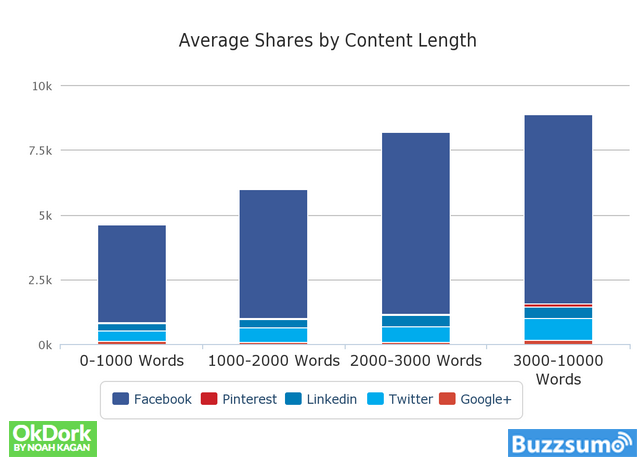It's like this:
I keep having this same conversation over and over again.
I review a website, and see blog posts and articles with nothing over 400 or even 300 words.
So I point out that their content is kinda thin. The response is always the same:
“Well, people have short attention spans!”
This is frustrating, because 300 word articles are actually a really bad way of holding attention.
300 words is a great length for some things and really far too long for others. But for your feature content?
That's like sitting down for a movie and getting a trailer.
But don't get me wrong
Short Attention Spans are Definitely a Thing
When did you last pen a personal letter? Unless you're a hipster, a kidnapper, or someone's grandmother, you probably fired off an SMS instead.
Writing for the web put you at the pointy end of this.
Work the phones or go door-to-door and at least a few will listen out of politeness.
When you write for the web, nobody owes you jack. The most considerate conversationalist won't feel at all bad about closing a tab.
And why not? There's literally the entire rest of the internet to look at.
Context
What We Can See Working
Enough chit chat, let's look at what performs.
You could do worse than start with Cracked.com. I realise it's not everyone's favourite website. But it's consistently one of the most visited websites in the world.
It performs particularly well on Facebook: in the heartland of the cat videos and selfies, it gets a lot of clicks.
These articles typically clock in at about 2,500 words.
No, not 250. It's not a typo. Two thousand five hundred.
If writing 500 words is long for you, this will seem gargantuan. But out there in the real world, this length still sits well within the realm of bite sized entertainment for the idle bored.
One reason I like this example is that you can hardly say these articles are running long because I cherry picked an intellectual, highbrow publication. I mean, sure, some of them are good writers. But it's hardly Salman Rushdie remembering Christopher Hitchens in Vanity Fair. These are tabloid funnies for a wide demographic.
Still, it's just one website.
What's the big picture?
 Source: OkDork.com
Source: OkDork.com
Here, we see longer content crushing it on Facebook, Linkedin and Twitter.
And search?
The average length of a page 1 Google result is 0 words.
Source: Backlinko.com
That's in line with what other studies report.
Does this mean that if you just type more, you'll get more search hits? No. It's not that easy.
What we're seeing is that Google loves content with enough substance, depth and detail to offer real value. That's what it takes to get the right backlinks, user engagement metrics, and on-page factors to reach page 1.









